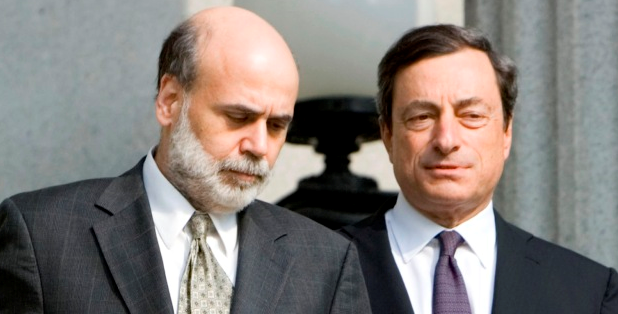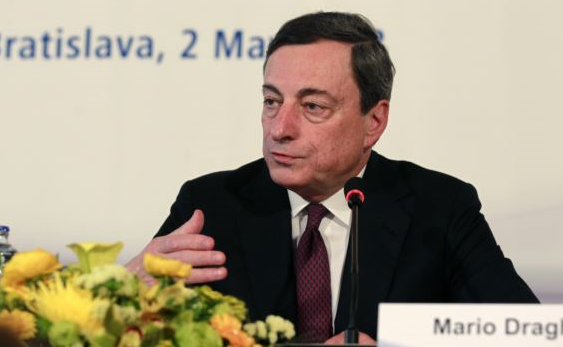The Gods of this crisis have been the central bankers, stepping in with their trillions of acronym-laden largesse. But I hypothesise that they are losing their power, even if markets are still scared into submission. The politicians lost their economic influence some time ago, maybe now it is the turn of central bankers.

The ECB press conference on Thursday highlighted that the bank has been forced to consider never-used-before policies to make any economic impact. The usual tool of interest rates has now become obsolete. A 25 basis point cut when rates are already below 1.00% is more show than substance. The ECB move was a sign of power loss.
At the start of this crisis, interest rates were a lot higher than they are now, so big cuts made a big impact. No longer – ZIRP ensures zip. Initially QE, LTRO, OMT all impressed but no more. QE has ripped UK borrowing costs to extraordinarily low levels but the Bank of England can do little about the ever-increasing black hole in UK state finances. Giving banks LTRO liquidity prevented eurozone bank failures but bank solvency is an issue the ECB cannot clear-up. The OMT promise to buy the debt of troubled eurozone states still dominates the bond markets, ensuring borrowing costs for the periphery are kept low (the ten-year yield for Italy is 3.7% and for Spain just below 4%). But will this continue? Or will we soon discover that the Emperor Draghi has no (OMT) clothes?
The ECB cut its main rate to 0.50% but left the deposit rate at 0%. This reduced the “corridor” between the two rates to only 0.5% – a record low. This led to speculation of an eventual negative deposit rate meaning it will cost banks to park money safely at the ECB. This is an example of the central bank’s loss of power. To force banks to lend to the real economy, the ECB has to threaten to charge them for holding cash. And yet despite this, the amount of loans made by banks to companies in the Eurosystem is still down 1.3% compared to last year.
And it is precisely to help business access cheap and plentiful credit that Draghi announced he was setting up a task force to look at the Asset Backed Securities market. ABS are securities (bonds) that are made up of lots of individual loans, mostly to businesses. It is a way for firms to borrow directly from investors (who buy the bonds) rather than using banks. Draghi wants to encourage the securitisation of debt in Europe which is outside the usual remit of the ECB and surely not what the Germans had in mind when they gave up their beloved Bundesbank. Secondly, it is an acknowledgement that the ECB has limits to its powers – it cannot sort out the banking mess and the impact that mess is having on the economy. The UK’s Funding for Lending scheme shows the extraordinary measures central bankers are taking. Such policies confirm a loss of power – they are acts of desperation.

We all learnt that the first rule of this crisis has been “Don’t fight the Fed” (or any other central bank). But there are limits to their power. Like a child slowly discovering its parents are fallible, markets will slowly realise Central Bankers are not as omnipotent as previously viewed. I suggest that the rule we should be learning now is “Fight the ECB (once it is weak)”.


